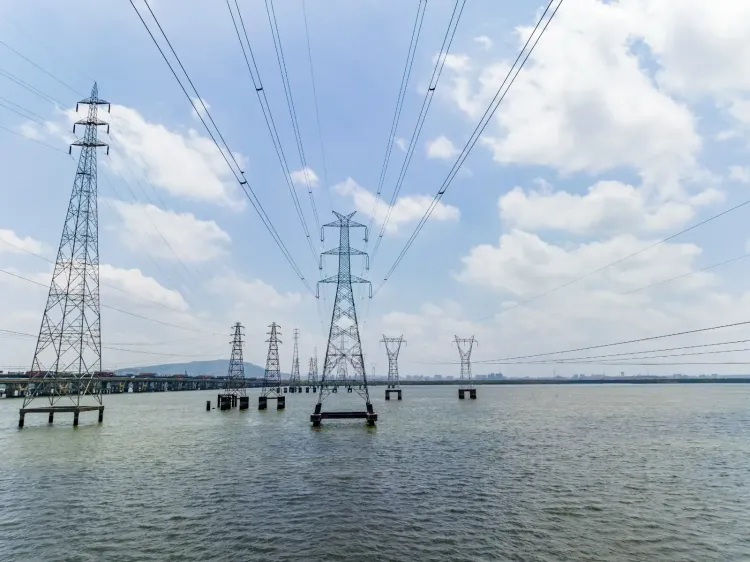Investment in Robust Grid Infrastructure Essential for Achieving Net Zero Emissions by 2070: Economic Survey

Synopsis
Key Takeaways
- Investment in grid infrastructure is vital for net zero emissions.
- India's low per capita carbon emissions support its development path.
- Vertical gardens can mitigate urban heat and improve air quality.
- India is progressing towards its NDC targets effectively.
- LiFE promotes sustainable practices for a circular economy.
New Delhi, Jan 31 (NationPress) Emphasizing the importance of investing in robust grid infrastructure is vital for realizing net zero emissions by 2070, according to the Economic Survey 2024-25, presented in Parliament on Friday by Union Finance Minister Nirmala Sitharaman.
The Survey highlighted that even with a significantly low per capita carbon footprint, India is on a trajectory of development. This approach not only guarantees affordable energy security but also promotes job creation, economic advancement, and ultimately environmental sustainability.
"To meet the target of net zero emissions by 2070, it is imperative for India to focus on substantial investments in the enhancement of grid infrastructure," it stated.
Additionally, it called for the secure sourcing of critical minerals essential for this transformative transition.
Moreover, the Survey emphasized the necessity of implementing vertical gardens, also referred to as living walls or vertical greenery systems (VGS), to combat the urban heat island effect, rising carbon emissions, and increased air pollution driven by rapid urbanization.
"Transforming urban facades into vibrant green landscapes with vertical gardens not only boosts the visual appeal of structures and contributes to environmental sustainability but also enhances thermal performance, captures carbon, and promotes biodiversity in densely populated urban areas," it stated.
Crucially, the Survey noted that India is progressing towards its Nationally Determined Contributions (NDC) targets.
As of November 30, 2024, "the installed electricity generation capacity of 2,13,701 megawatts from non-fossil fuel sources represents 46.8 percent of the total capacity," the Survey reported.
This advancement will facilitate achieving the revised NDC objective of reaching 50 percent by 2030. An additional carbon sink of 2.29 billion tonnes of carbon dioxide (CO2) equivalent has also been established between 2005 and 2023, against the NDC goal of 2.5 to 3 billion tonnes by 2030," it added.
In the meantime, the Survey underscores the necessity for a fundamental change in mindset and behavior towards mindful consumption and production to attain the goal of net zero carbon emissions. The India-led global initiative, Lifestyle for Environment (LiFE), is working towards this.
“LiFE seeks to bolster the country’s sustainability initiatives by promoting environmentally conscious practices such as waste management, resource conservation, and recycling,” the Survey noted, also highlighting its goal of fostering a circular economy.
"Proactively implementing LiFE initiatives can deliver substantial co-benefits, such as reducing energy consumption disparities, alleviating air pollution, achieving cost savings, and enhancing overall health and well-being," it concluded.
These initiatives, aimed at reducing consumption and lowering prices, are projected to save consumers approximately $440 billion globally by 2030.
The Survey emphasized the necessity for a comprehensive awareness campaign to transform the LiFE mission into a widespread public movement.









